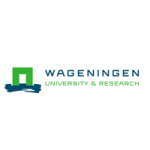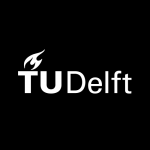项目介绍
Marie Skłodowska-Curie Actions (MSCA): Vacant PhD Positions in Economics, Strategy, and Innovation
Exploring the Maritime-Energy Ecology: Ports as Energy Transition Hubs (POTENT)
Copenhagen Business School (CBS), under the prestigious Marie Skłodowska-Curie Doctoral Networks grant (Economics Panel), invites applications for three fully funded PhD positions to be carried out within the international Ports as Energy Transition Hubs (POTENT) project. The project spans leading universities across Denmark, Sweden, Norway, Germany, and France in close collaboration with industry partners who participate to anchor the research in practical challenges and opportunities emerging from the clean energy transition.
We are looking for ambitious and curious PhD candidates driven by big questions in economics, strategy, and innovation and eager to work on emerging interdisciplinary challenges, even if they have not previously worked in maritime or energy-specific domains.
What is POTENT about?
At the heart of POTENT is a rethinking of how ports and coastal infrastructure can drive the clean energy transition. We introduce a “new maritime-energy ecology” as a novel lens that bridges economic theory, sustainability transitions, international trade, innovation, and organizational strategy. This is an opportunity to contribute to an emerging interdisciplinary domain, where ports evolve from traditional trade hubs to become catalysts of the transition to renewable energy and green fuels, decarbonization in hard-to-abate sectors (such as shipping), and systems resilience.
Each PhD will be embedded in an international academic network with Europe-wide secondments, industry partnerships, and a comprehensive and interdisciplinary training environment tailored for career and research development.
Available PhD Positions
DC1: Organizational Dynamics and Institutional Innovation
Host: Department of Strategy and Innovation and the cross-disciplinary research environment CBS Maritime
Focus: How organizations shape (and are shaped by) the energy transition. This project explores how new business models and institutional frameworks emerge in response to climate change and environmental pressures, focusing on strategic innovations and the managerial and policy implications for supporting transformation in near-shore energy systems, such as ports.
Secondments: KEDGE Business School (FR), Port of Esbjerg (DK)
DC2: Economics of Energy Markets and Policy Design
Host: Department of Economics and the research center Copenhagen School of Energy Infrastructure (CSEI)
Focus: This position invites candidates with an interest in applied economics, energy policy, or infrastructure regulation. The research will explore the socio-economic dynamics of energy systems, with a focus on market design, regulatory frameworks, innovation, and policy mechanisms that can support the integration of renewable resources into broader infrastructure networks.
Secondments: Norwegian School of Economics (NO), Danish Utility Regulator (DK)
DC3. Systems Strategy and Network Innovation
Host: Department of Strategy and Innovation, in collaboration with CBS Maritime and CSEI
Focus: A systems-level view on sector-coupling and industrial symbiosis, studying how energy, transport, and logistics networks evolve in interconnected ways. The research addresses regional integration and value adding chain structures (e.g., global value chains, global supply chains) in energy transitions.
Secondments: Kühne Logistics University (DE), United Nations Conference on Trade and Development (CH)
Who Should Apply?
You might be a fit if you:
- Are an MSc. graduate in economics, management, innovation studies, or related fields
- Are excited by interdisciplinary work, even if you have not specialized in energy or maritime issues
- See PhD research as an opportunity to connect theoretical research with pressing societal and policy challenges
- Are looking for an engaged scholarship PhD experience that combines academic rigor, international collaboration, and real-world application
- About the POTENT Framework: Towards a New Maritime-Energy Ecology
POTENT invites you to join a developing research frontier attracting interdisciplinary interest: reframing ports and maritime infrastructure as key enabling (or restraining) actors in energy transitions. This “maritime-energy ecology” integrates:
- Applied and environmental economics
- Innovation and institutional theory
- Infrastructure systems and supply chain strategy
- Rather than viewing energy and maritime as separate subfields within applied social science, we approach them as interconnected domains whose convergence enables the exploration of broader theoretical questions, providing a grounded context for advancing both economic and management scholarship.
About the Department of Economics at CBS
The Department of Economics (ECON) provides research, teaching, and knowledge exchange within the core areas of economics, i.e., microeconomics, macroeconomics, and quantitative methods. The Department is especially active in business-related, applied economic research and comprises two research centres: Copenhagen School of Energy Infrastructure (CSEI) and Pension Research Centre (PeRCent).
Core research areas of the Department of Economics are:
Behavior, Incentives and Economic Design
Design Employment and the Functioning of Labor Markets
Energy, Environment and Resources
Firm Behavior, Innovation and the Functioning of Markets
Growth, Unemployment, and Inflation
Globalization, Migration and Urbanization;
Quantitative/Empirical Methods and Data Science
Welfare: Education, Health Care and Pensions
The Department of Economics has a strong research focus and has been successful in fundraising activities. It is currently hosting research projects supported by the Danish/EU research councils, as well as private foundations and companies.
About the Copenhagen School of Energy Infrastructure
The Copenhagen School of Energy Infrastructure (CSEI) conducts research in tomorrow’s energy infrastructure from an economic policy point-of-view to ensure a successful transition towards a new sustainable European Energy Infrastructure based on volatile and largely renewable energy sources.
CSEI is established in the form of a European research centre at CBS’ Department of Economics and delivers expertise and new knowledge as well as education within energy infrastructure in close cooperation with stakeholders from the sector, the European Commission and society at large.
About the Department of Strategy and Innovation at CBS
The Department of Strategy and Innovation’s (SI) research is focused on strategy, innovation, entrepreneurship and international business. The department’s ambition is to host an internationally leading environment for research and teaching within the broad area of strategy. The department’s research is generally cross-disciplinary. Faculty members have backgrounds in management, economics, sociology and economic geography. The theoretical foundation for research in these areas is eclectic, combining strategy, innovation, and/or internationalization theory with insights from economics, sociology, psychology, and economic geography. The department has 45 faculty members (professors, associate professors, tenure track assistant professors), 8 administrative staff, and 30 members of staff who are hired on temporary contracts as research assistants, post docs or PhD students.
The department puts substantial emphasis on the solid application of scientific research method. The department has a pluralistic approach to research methods that includes, for example, formal theoretical models, quantitative empirical methods such as (lab and field) experiments, econometric applications to register data or survey data, as well as qualitative research methods. PhD project proposals should be based on coherent theoretical arguments and contain well-informed methodological considerations. To find out more about the department please go to https://www.cbs.dk/si.
About CBS Maritime
CBS Maritime is a cross-departmental research center at CBS, established in 2013, that focuses on maritime economics, business, and policy. It serves as a hub for maritime research, education, and industry engagement, fostering collaboration between academia and key stakeholders in shipping, ports, and maritime industry.
CBS Maritime conducts research on critical topics such as decarbonization and clean energy, sustainable shipping, maritime digitalization, and supply chain innovation. Its studies aim to inform best practices and policy development for the maritime sector worldwide. Key educational initiatives (e.g., the B.Sc. in International Shipping and Trade, the Executive MBA in Shipping and Logistics, and the higher diploma degree HD Maritime) integrate CBS Maritime’s research into academic study programs.
About CBS’ PhD Programme
The three-year PhD programme at CBS gives you the opportunity to conduct research under the supervision of CBS’s associate professors and professors, supported by research related PhD courses. The programme is highly international, and you are expected to participate in international research conferences and to spend time at another research institution as a visiting PhD student. See the CBS homepage for more information about the PhD programme: https://www.cbs.dk/en/research/phd-programme.
CBS PhD graduates are held in high esteem not only in academia and research institutions but also in government and business where their research qualifications are in high demand.
CBS is committed to ensuring excellence, transformative and relevant teaching and research. Candidates who wish to join us must be interested in working in an organisation of this type and it is expected that the applicants show an interest in joining the department’s research environment. You can read more about the departments’ research here: https://www.cbs.dk/econ/ and http://www.cbs.dk/si/.
MSCA Application Requirements
According to the mobility requirements of the MSCA guidelines candidates must not have resided or carried out their main activity (work, studies, etc.) in the country of the host organization (i.e. Denmark in this case) for more than 12 months in the 3 years immediately before the recruitment date.
Application and admission requirements
The department will give priority to applicants with high grades from their universities.
To be considered the applicant must
- have a basic education at master’s level (corresponding to the 3 + 2 Bologna process)
- have received the grade of 10 (or equivalent) for the master’s thesis according to the Danish 7-point grading scale (https://ufm.dk/en/education/the-danish-education-system/grading-system)
- have a weighted grade point average of at least 8.2 on the Danish 7-point grading scale for the bachelor’s and master’s degree combined or alternatively a weighted grade point average must be at least 9.5 for the master’s degree alone. If the grade point average is not met, documentation for being in the top 40% of the class is also accepted.
- have completed the master’s programme before starting the PhD programme at CBS
- master academic English at a high level in writing and speaking
- have the aptitude to complete the required Ph.D. coursework in advanced economics subjects.
4+4 PhD scheme
For admission to the 4 + 4 PhD scheme, the applicants must have completed a bachelor’s degree (or equivalent) and have passed subjects corresponding to 60 ECTS in a relevant master’s programme within the CBS’ subject areas.
The minimum weighted grade point average is 8.2 on the Danish 7-point grading scale for the entire programme (i.e. for the full bachelor and one year of the master studies together), and at least the grade 10 for the bachelor thesis or equivalent final examination project. If the grade point average is not met, documentation for being in the top 40% of the class is also accepted. Applicants who are not enrolled in a master’s programme at CBS will be assessed by the Admissions Office.
The application (see link below) must include a five-page project description. The research proposal is considered the backbone of the application and should be very carefully prepared by the applicant. It is your explanation of how you would approach the PhD project, referring explicitly back to one of the two descriptions under “The Research Projects” above. The project description must include:
- a description of the initial theoretical framework and method
- a presentation of the proposed empirical material
- a work plan for the three years
More information can be found here:
https://www.cbs.dk/en/research/phd-programmes/admission
In addition to the project description, copies of the following must be included:
- diploma for bachelor’s and master’s degree or other certificates at an equivalent level as well as the grade transcripts
- documentation for being in the top 40% of the class (if grade requirements are not met)
- a concise curriculum vitae (CV)
- list of articles and publications (if applicable)
- example of written work (e.g. master’s thesis)
- documentation of English language skills
Please note that an offer of employment is conditional upon successful enrolment in the CBS PhD School. Further information about PhD scholarships and the PhD programme can be found at https://www.cbs.dk/en/research/phd-programme
For further information please contact Kristoffer Rae, email potentmsca@cbs.dk
Information about the departments can be found at https://www.cbs.dk/econ and https://www.cbs.dk/si Information about the Copenhagen School of Energy Infrastructure can be found at https://csei.eu Information about CBS Maritime can be found at https://www.cbs.dk/en/cbs-agenda/areas/cbs-maritime .
Employment and salary
The PhD scholarship runs for a period of three years and in lieu of a teaching load, the PhD student is expected to contribute with 20% of their time to the deliverables of the projects and their dissemination (for details see “The Research Project” above). This obligation is equivalent to six months’ work (624 net working hours). The scholarships are fully salaried positions, according to the national Danish collective agreement. The monthly salary is currently approximately DKK 28,993 up to DKK 35,015 depending on seniority and a pension contribution totalling 17.1%. The scholarship includes tuition fees, office space, course and travel costs (according to the current CBS agreement). Salary level and employment take place in accordance with the Ministry of Finance’s agreement with the Academics’ Central Organization.
Recruitment procedure
The Recruitment Committee shortlists at least two-five applicants to be assessed by the Assessment Committee. Applicants are informed whether their application has proceeded for assessment.
Applicants selected for assessment will be notified about the composition of the Assessment Committee and will receive their personal assessment later. Selected applicants will be invited for an interview. Please note that a positive assessment does not automatically result in an interview. Once the recruitment process is completed each applicant will be notified of the outcome of their application.
The application must be sent via the online link below.
Copenhagen Business School must receive all application material, including all appendices (see above), by the application deadline.
Details about Copenhagen Business School are available at https://www.cbs.dk/en
For further information on the project, prospective applicants can contact
Kristoffer Rae, potentmsca@cbs.dk
For questions about the PhD programme at CBS, you can obtain details from
ECON Department PhD Coordinator, Professor Dolores Romero Morales, drm.eco@cbs.dk
SI Department PhD Coordinator, Professor H.C. Kongsted, hck.si@cbs.dk
Application Deadline: June 10th, 2025
Closing date: 10 June 2025.
相关项目推荐
KD博士实时收录全球顶尖院校的博士项目,总有一个项目等着你!





